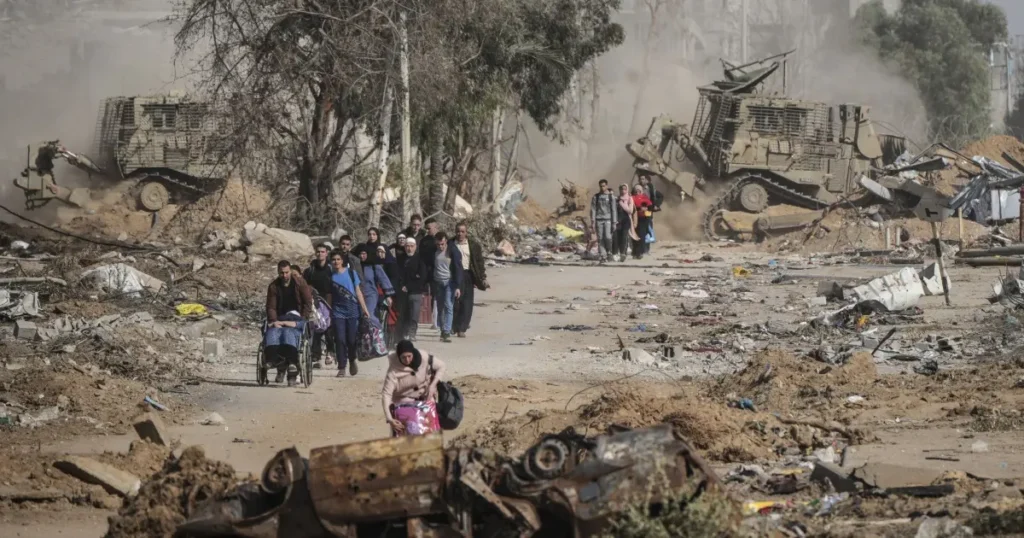
What Would You Do If Clean Water Ran Out—And There Was Nowhere Left to Go?
It sounds like a scene from a post-apocalyptic movie. But for millions of people trapped in modern-day war zones, this is real life.
Inside the Humanitarian Crisis Right now, in places like Gaza, southern Lebanon, and parts of Iran and Israel near active conflict zones, families are facing a different kind of battle—not just against bombs and bullets, but against hunger, thirst, illness, and isolation.
This is the hidden war behind the war: the humanitarian crisis that rarely makes it to the top of the headlines—but is silently claiming lives every day.
The Daily Struggle for Basics
Inside the Humanitarian Crisis When you think of war, you probably picture destroyed buildings and burning streets. But what happens when the power goes out, food shelves stay empty, and ambulances stop coming?
For people living under blockades or in conflict-affected areas, everyday tasks become impossible.
- Need baby formula? You might have to trade your phone for a single can—if you can find one.
- Need insulin or heart medication? You may wait days, weeks… or never get it at all.
- Need clean water? You’ll likely spend hours boiling whatever you can collect—rain, tap water, even puddles.
Inside the Humanitarian Crisis And forget fresh fruit or meat. In many places, a loaf of bread is a rare luxury. In others, one onion can cost the same as a full meal used to.
Blockades: War Without a Bullet
Inside the Humanitarian Crisis Blockades are a weapon, too. They’re used to cut off supplies, break down communities, and weaken the people—without ever firing a shot.
Take Gaza, for example. Under a strict blockade for years, its residents are now running dangerously low on fuel, medical equipment, and even electricity.
Hospitals can’t refrigerate vaccines. Kidney patients miss dialysis. Premature babies rely on backup batteries to stay alive.
Dr. Hani, a surgeon in a Gaza hospital, told a reporter,
“We used to schedule surgeries. Now we schedule who gets to live another hour.”
In Iran, economic sanctions and internal unrest have caused medicine shortages even in the capital. Meanwhile, in southern Israel, towns near the front line often go without deliveries as routes become unsafe.
The result? People surviving on next to nothing—not because they’re poor, but because the system around them is collapsing.
A Mother’s Grocery List in a Crisis
Imagine writing a grocery list that looks like this:
- Clean water (2 bottles max)
- Rice (if any left)
- Bread (check black market)
- Soap (maybe trade sugar)
- Baby wipes (too expensive—use cloth)
That’s the list Mona, a mother of four in Rafah, Gaza, shared with a local aid worker.
“Everything costs more now,” she said. “Even hope.”
And yet, she still gets up every morning, boils water over a makeshift stove, and tries to make her children laugh while boiling lentils for breakfast.
Aid Workers: The Lifeline in Chaos
Amid all this, humanitarian workers are doing whatever they can.
These are the people crossing checkpoints, unloading boxes under fire, sleeping in tents near war zones—just to deliver medicine, blankets, food, and dignity to those trapped by conflict.
Inside the Humanitarian Crisis But even they are stretched thin. Funding is down. Routes are blocked. And in many places, aid convoys are attacked or denied entry altogether.
One UN worker said,
“We’re not short on compassion. We’re short on safe roads and permission to help.”
Why This Affects All of Us
Inside the Humanitarian Crisis You might be far from these war zones. You may never have to think twice about your next meal or worry if your medicine will arrive.
But understanding this crisis matters—for three simple reasons:
- Humanity has no borders. If people suffer, we should care—no matter where they live.
- This could happen anywhere. War, disaster, and breakdowns of supply chains aren’t limited to certain countries.
- Change starts with awareness. The more people know, the more pressure builds on governments, donors, and global systems to act.
What You Can Do Today
You don’t need to be an aid worker or a politician to help.
Here’s how:
- Donate to organizations like the Red Cross/Crescent, UNHCR, or Doctors Without Borders.
- Share stories like this to bring attention to the unseen crises.
- Advocate for open humanitarian corridors and international protections for aid workers and civilians.
Inside the Humanitarian Crisis Even small actions matter. Because when the world sees the people behind the numbers, change becomes possible.
Final Thought
Inside the Humanitarian Crisis War destroys more than buildings. It unravels lives—one empty shelf, one skipped meal, one untreated illness at a time.
Inside the Humanitarian Crisis But even in the darkest places, you’ll still find a mother rocking her baby, a nurse tending to the wounded, a father fixing a broken water pump.
Inside the Humanitarian Crisis They haven’t given up. And neither should we.
Let’s keep them in the light. Let’s make sure their battle to survive isn’t a silent one.



